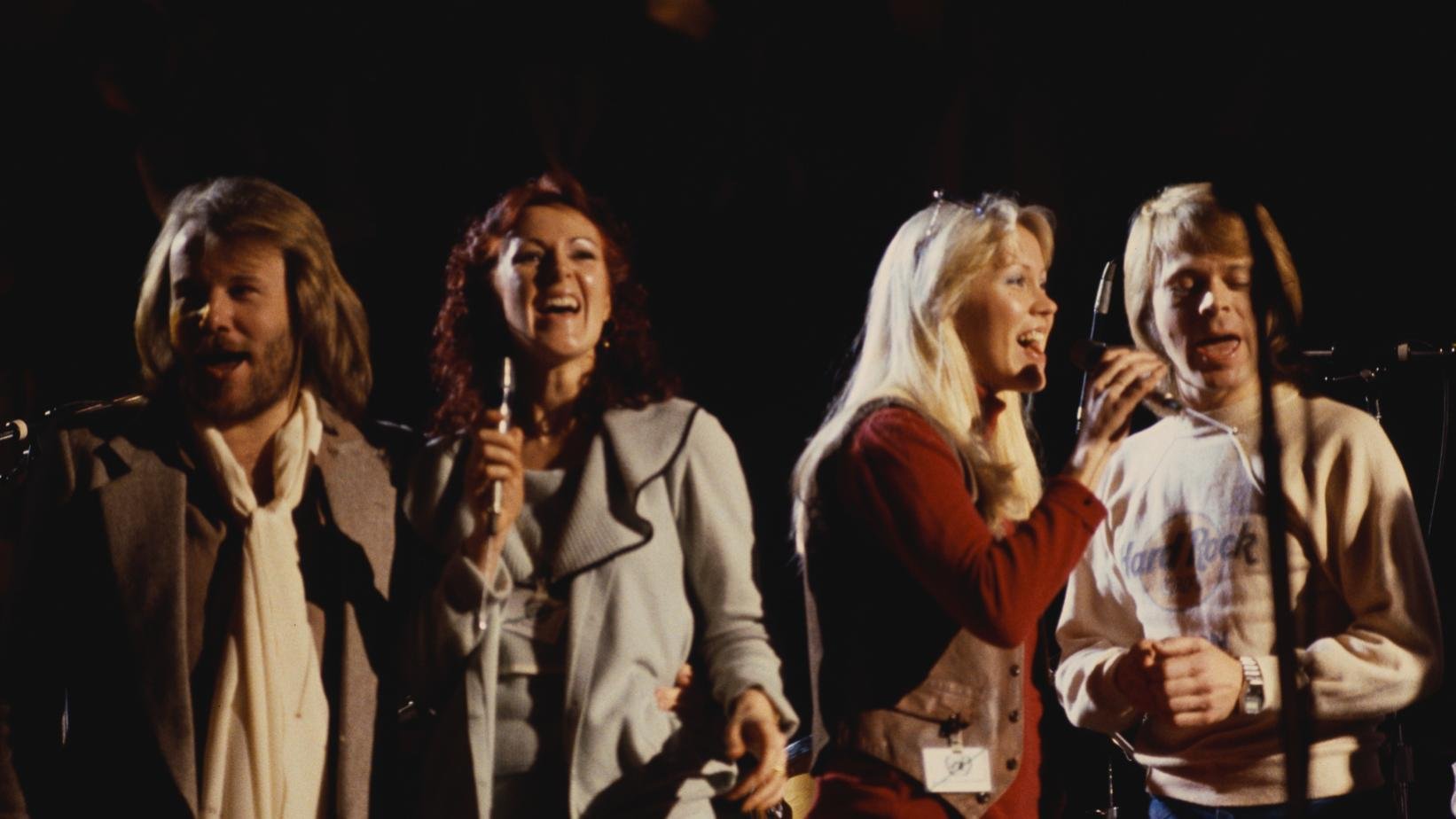Album Review: Voyage
We all know ABBA in some form. If you don’t… you do. Trust me on this one.
Image Via
Since their conception in 1972, ABBA has found a way to permeate pop culture and media through their distinct, almost irreplicable music—a vibrant mix of pop, pop-rock, and disco. Unafraid to tackle odd subjects, such as kissing your teacher or happy vacations to Honolulu, their music spans far beyond chart numbers. Their song “Waterloo” having won the Eurovision song contest in 1974, and band members and songwriters Benny Andersson and Björn Ulvaeus having written the successful Broadway musical Mamma Mia! using their own discography as the basis for the soundtrack. And currently, the band is developing a stage performance in London that employs VR performance-capture technology to display the band in their prime via digital avatars, de-aging them back to 1979.
So let’s just say, ABBA found a way to culturally persist.
Now, nearly forty years following their last album The Visitors released in 1981, the quartet has returned from a four-decade hiatus with new music. Ready to embark on another musical journey with their latest album Voyage released November 5, 2021.
Image Via
For a long-time superfan of the Swedish sensation like myself, the release of Voyage was and still is my most anticipated release of the year. After marinating in this new music for a bit, it’s time I pull up my musical bootstraps and take a journey into this new release from my favorite artist, digging in and giving my review of the long-anticipated return of ABBA.
The first track and one of two promotional singles for the album, “I Still Have Faith in You” commences the band’s return to music with a ballad. The introspective lyrics, written by band member Benny Andersson, focus on the current of time and how faith and trust remain despite the separation of time or shared animosity, reflecting the trajectory of the band’s relationship since the 1970s. This connection to the band is alluded to in the chorus with the lyrics: “We have a story/And it survived/And we need one another/ Like fighters in a ring/ We’re in this together.” With a beautiful piano track, this anthemic song commences their return with the reminder that ABBA will remain together despite distance or separation. Also, this song makes history as the first ABBA song nominated for a Grammy award, nominated for Record of the Year.
ABBA detours from their typical sound with “When You Danced With Me” leaning into Nordic folksong for inspiration. The reminiscent song details someone speaking to a long-gone lover, asking if they miss the times they danced together at the Village Fair. However, the Nordic folk sound gives this reminiscence an optimistic swing, making their curiosity about their lover almost supportive. This contrast is what I find makes this song an ABBA song. The focus on heartbreak and longing underscored by optimistic drums and synth presents the downfalls of love, such as losing a lover, as a moment of profound affection.
Suddenly, it’s Christmas time. The album shifts tonally at this point with the third track, a Christmas song of all things. I can understand why there is a Christmas song, as the album was released just before the holiday season, but the song itself is lackluster. On their first voyage into the Christmas music market, the song “Little Things” sings of Christmas mornings and the bursting sounds of ecstatic children as they giggle and yell of gifts from Santa. A simple piano track with an outro sung by a children’s choir, the hymnal song is considerably run-of-the-mill by comparison to other Christmas songs of the same nature. There is nothing original to it, riddled with holiday clichés and a simple melody that fails to do anything musically authentic compared to other songs by ABBA and other Christmas songs. This song is also tonally inept compared to the rest of the album, pandering to a new holiday audience without considering its own originality beforehand.
In the same vein as “So Long” and “All Is Said and Done” the fourth, fifth, and ninth tracks on Voyage can all be summarized as rock-piano stylings that reel you with addictive melodies laced with catchy lyrics. “Don’t Shut Me Down” and “Just a Notion” and “No Doubt About It” all follow what I consider—the ABBA musical formula. Using a set of exciting narratives or ideas to write fun lyrics underscored by well-styled piano, drums, and synth. The result is a catchy song that anyone can enjoy. This formulaic but authentic means of creating music is uncanny in its ability to make chart-topping sounds.
Voyage thus far has introduced new outlets of ABBA unexplored in past albums: new genres, sounds, and even subject matter. However, the album’s latter half returns to the introspective realm with the sixth track, “I Can Be That Woman.” The ballad is the story of a woman returning home, viewing her life through the contemplative lens of her failures with sobriety and the changes to her life in her struggle to overcome addiction. In a commentary for Apple Music, band member Björn Ulvaeus said this about the song: “Only we know what is fact and what is fiction about our life experiences together. It’s a kind of freedom that you get. With 70, you get that freedom.” This song, while musically simple, packs a narrative punch much harder than the typical focus of ABBA.
From this point, the following two tracks maintain this somber subject matter established with “I Can Be That Woman.” Almost tangential to “I Can Be That Woman” the seventh track “Keep An Eye On Dan” deals with familial change, marital issues, and personal struggle. In contrast, “Bumblebee” reflects on catastrophes of climate change. Both songs present a new maturity to ABBA not seen in the past, upheaving the process of traumatic personal struggle and even treading into the waters of social commentary with “Bumblebee.”
Image Via
Voyage by ABBA consists of the old and the new. Nostalgia is peppered throughout the album, encouraging fans to reminisce in the sounds of ABBA we’ve come to recognize. Yet, the album welcomes a new maturity, revealing an ABBA redefined by the time separated from the spotlight and each other. Voyage at its core is the story of ABBA’s 40-year long journey after The Visitors. We, as the listener, are brought in to hear what changed and remained the same, to take a voyage through the experiences, the hardships, love, and loss of these four individuals after one of the most successful careers in music history, and to see where this career led them after that. While this album is far from perfect, it is the journey of the artistic transformation of ABBA as a band parallel to the personal developments of Agnetha, Benny, Björn, and Anna-Frid, as people.
Thumbnail image via








